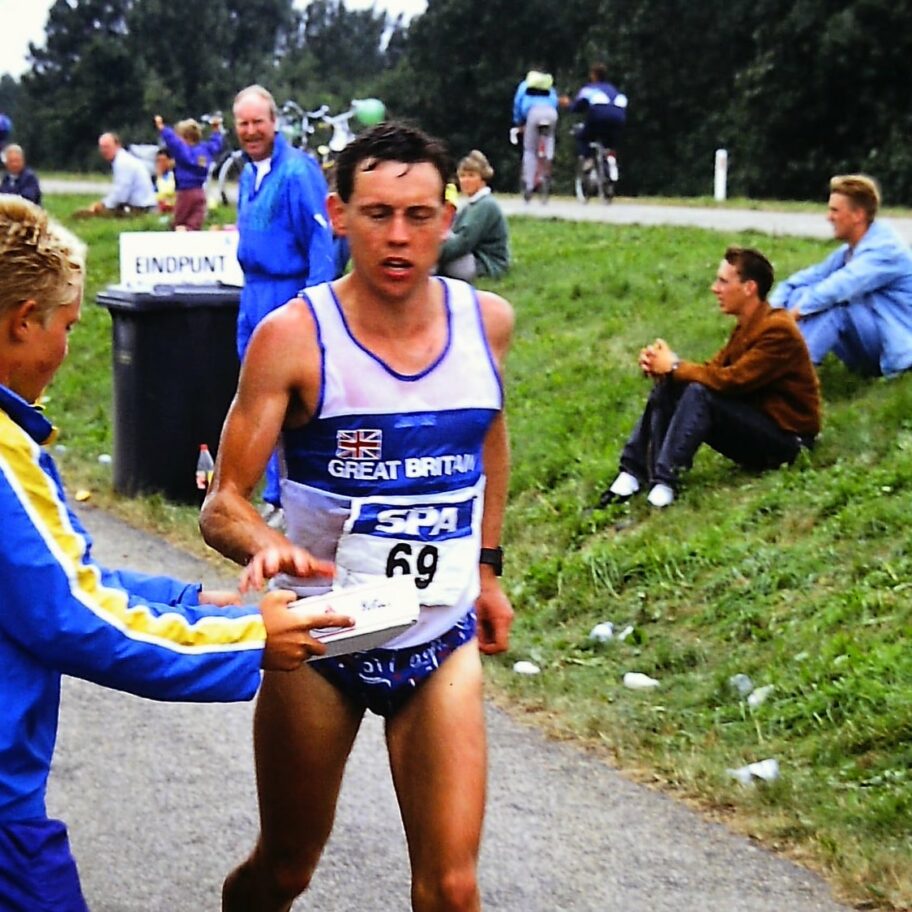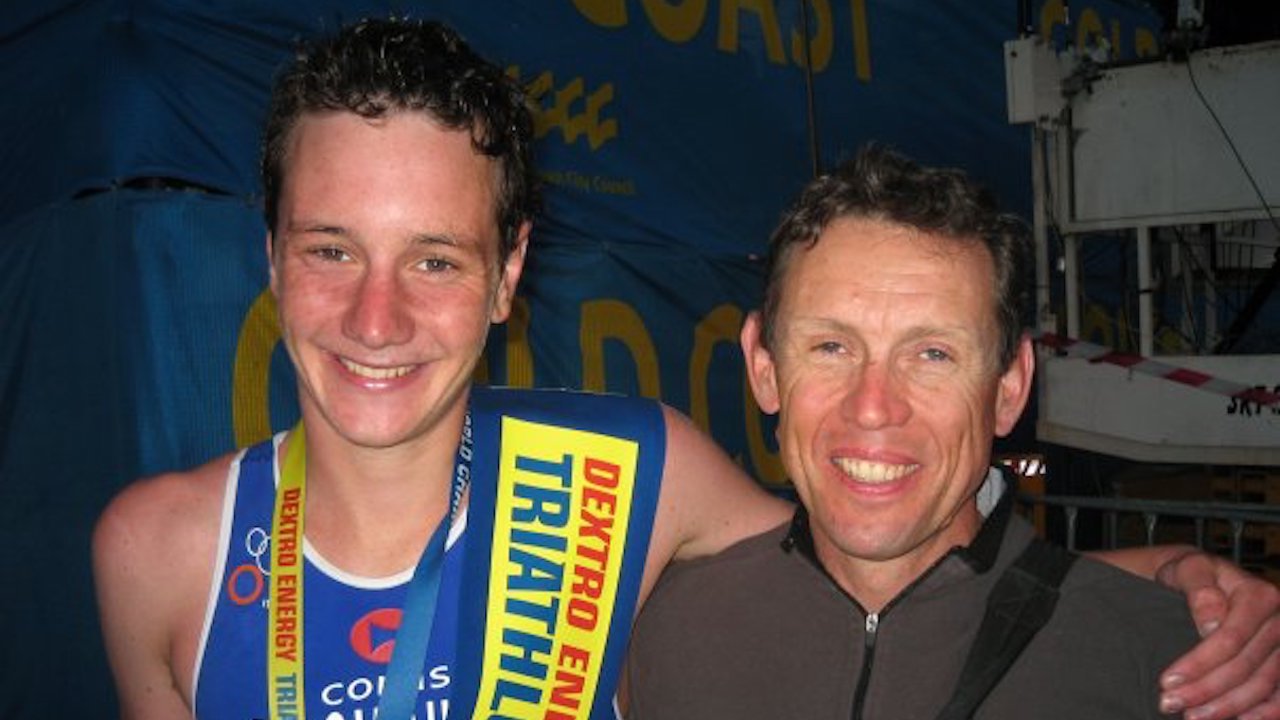Jack Maitland is a man who likes to keep a low and modest profile – but he has, and continues, to play a key role in many of Great Britain’s World Championship and Olympic Games triathlon successes.
With a career which saw him hold the position as Head Coach of the Leeds Triathlon Centre for 13 years, he has consistently been one of the foundations on which medal success has been built for British athletes. That was recognised in 2012 with a Gold Pin Award from British Triathlon, reflecting his significant and longstanding contribution to the sport.
More than a decade on from that, he’s still quietly playing his part at the highest level. Having guided Beth Potter since her transition from Olympic 10,000m runner in 2016 to World Champion triathlete this season, I felt it was definitely time we got to know Jack a little better, and shine a light on his talents.
In the first part of this series, I discussed Jack’s own sporting journey which was a varied and successful one in its own right, long before he even knew what triathlon was.
Finding his way – orienteering…
It was back in 1990 when I started my own personal triathlon pathway when I joined the Tri Club at Loughborough University. Even back then, I remember seeing the name of Jack Maitland in events and in the magazines of the day. For Jack, it turns out that it was good fortune of being in the right place, at the right time, which allowed him to even find triathlon.
There was plenty more sport before that, however, as he explained to TRI247:
“I was brought up in a small village in Aberdeenshire, and I had a sort of inspirational P.E. teacher, who took us to orienteering events actually initially, and that was getting us out of our little valley and down to southern Scotland and further afield, going away and racing.
“Through that I was in the Scottish Junior team and eventually British Junior team, and then British Senior team for orienteering. Of course, that got me doing some proper running training, as prior to that I was just one of these people at school who did absolutely everything and was generally fit.
“I kept that going when I went to Uni as my main sport, but then I got more and more into my running and was introduced to fell running, mostly through a guy called Colin Donnelly – who was a contemporary of mine at university. So when my orienteering career was stalling a bit, with that tricky transition from Junior to Senior and I wasn’t quite quick enough for my liking as an impatient youngster (!), I got more into the fell running side of things.
“I won the British Champs in ’86, and moved down to Leeds to do a post-graduate at Leeds Uni.”
Jack was laughing about his choice of university locations and subjects however, and his true motivations.
To be honest, my degrees were really in orienteering and running, with a side degree in computer science and maths!
“My memories of coming to Leeds was that I had good contacts with the running club in Leeds and the orienteering club, and the guys there had tempted me with a good scene, and of course being in the north of England meant it was great for the fells. I ran for Pudsey and Bramley AC in Leeds for many years.
“So yeah, it was definitely opportunities on the athletics side rather than the academic side that was really driving me at that time.”
Getting into triathlon
If it was a teacher who had got him active and keen on adventure, there was an element of fate regarding Jack’s first contact with triathlon – and it was a long way from home, too.
“I only got into triathlon when I was out in New Zealand, doing some mapping – making orienteering maps for a guy in Taupo. He was also organising the local triathlon, and said why don’t you give this a go. So I ended up doing about three triathlons there, in what was really the early days of triathlon.
“When I came back, I was was racing for Scotland in the World Cup mountain running and was also doing some of those interesting races – the Everest Marathon in ’89, Mount Cameroon Race three-times and the Annapurna Triathlon about five times – so quite a few of those exotic ones.
“I started doing a few more triathlons in the UK in 1987, but the thing that really got me into it was that by the time the Commonwealth Games came around in 1990 in Auckland [Ed. triathlon was a demonstration sport at the Commonwealth Games that year], I kind of knew that I could get in the Scottish team if I put my mind to it, and that was quite an incentive.
“I did the selection race in 1989 and qualified, and then raced in Auckland; I did fairly terribly, but I was the first Scot and I think the fourth Brit, and it was enough to give me a little taste of racing triathlon at a more serious level.
Triathlon became my main sport from that point on for about 12 years, and I raced for GB about a dozen times.

From athlete to coach
Sometimes planning is everything, and other times you go with the flow – and speaking to Jack, his move into coaching was certainly not the result of any detailed strategic planning.
“I subsequently got into coaching via triathlon. Back in those days there weren’t really any triathlon coaches, so we had people coming in from the individual sports who had a lot of knowledge.
Because I’d been a runner, everyone thought I had all this coaching knowledge about running – which I didn’t really!
“But people kept asking me could I come and coach running on this camp or whatever.
“I thought I should probably get some qualifications, so I did my basic British Triathlon badges and it expanded from there. Simon Ward asked me to coach with him in his private business, thetriathloncoach.com, as he was probably one of the earliest guys doing serious professional triathlon coaching, so I started working with him a little bit.
“British Triathlon was looking to set up a Junior development programme, post the Sydney Olympics, as prior to then there had only really been a Senior squad. Simon and myself bid to run the Northern part of that programme and we got the go-ahead to do that out of a base in Leeds, which is where we were. At that point it was everything from the Isle of Man to the Scottish Borders basically and all the way down to Lincolnshire!
“I was learning a lot about coaching, there was some good CPD stuff that British Triathlon was providing for us at that time, and the other coaches who were part of that at the time were really good guys. There was Robin Brew, Glenn Cook, Steve Lumley – a lot of experience coming to the table – some quality people, who did some great work.
“To our good fortune, Alistair and Jonny were doing some children’s triathlon at the time, so it wasn’t too difficult to find them in talent ID terms! So we brought them into our programme as they aged-up to be old enough to meet our criteria.
 Celebrating Grand Final success with Alistair Brownlee in 2009
Celebrating Grand Final success with Alistair Brownlee in 2009
“By the back-end of 2001, my own triathlon career was waning a little. I’d hoped to qualify for Scotland for the 2002 Commonwealth Games in Manchester, which would have nicely rounded out my career as a triathlete. Unfortunately I didn’t manage to get into the team, partly because I was so involved in the coaching, so I took the decision at the beginning of 2002 to become a full-time triathlon coach.
“I could see the opportunities with the athletes that we had, and felt that it was a good time to make that move.”
Prophetic words indeed, which we shall pick up in part two of this interview series.
>>> Read full article>>>
Copyright for syndicated content belongs to the linked Source : Tri247 – https://www.tri247.com/triathlon-news/elite/jack-maitland-triathlon-coach-brownlee-brothers-beth-potter?utm_source=rss&utm_medium=rss&utm_campaign=jack-maitland-triathlon-coach-brownlee-brothers-beth-potter










